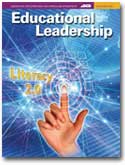Six short years ago, I owned a Discman, an AIM account, and a cordless telephone. Now, my iPod, cell phone, Skype, Facebook, Twitter, and Gmail accounts have all redefined my lifestyle: how I store music, keep in touch with friends, buy products, and read the news.
Although social networking is now part of my life, until recently I'd never thought about what it all meant. What makes the development of online social networking more significant than the adoption of radio, the telephone, or television? What is the social outcome of this technological revolution? In Here Comes Everybody: The Power of Organizing Without Organizations, Clay Shirky explains not only social networking and how it works, but also what it means for people and how it changes the way we all get things done.
Shirky puts the current technological revolution in perspective by comparing it with the creation of the printing press and the "information explosion" that this invention sparked in the 15th century. Although it is reassuring to know that humankind has managed to survive a massive communication transformation in the past, it is still slightly unnerving to learn that after the printing press became ubiquitous, Europe was thrust into 100 years of political and intellectual chaos. As Shirky writes,Our social tools are not an improvement to modern society; they are a challenge to it. New technology makes new things possible: put another way, when new technology appears, previously impossible things start occurring. If enough of those impossible things are important and happen in a bundle, quickly, the change becomes a revolution. (p. 107)
Nonetheless, Shirky remains largely optimistic, using engaging real-life examples to methodically explain not only the basics of social networking platforms, but also their (mostly) positive effects on society.
What makes the book especially valuable is the author's dissection of how social networking is changing the way groups of people behave, no matter what online platform they are using. According to Shirky, the ease of assembly facilitated by the Internet is changing what unsupervised groups of people can accomplish and is shaking to the core the foundations of many established organizations. We see examples of this phenomenon every day: The music industry struggles to cope with the explosion in online music sharing; Wikipedia is a ubiquitous information source; newspaper moguls compete with amateur bloggers. And all of it comes down to how quickly and easily people can gather around a common purpose, product, or interest.
Here Comes Everybody is a must read for any educator who strives to support students in attaining literacy in an online world. It is not enough to know how to use online tools and platforms; competent 21st-century citizens must also know how to harness the power of these tools in a positive way. That power can belong to educators and their students if they understand social networking as a whole new level of human interaction that will inevitably affect their personal, educational and professional lives. Shirky assures us that although there may be growing pains, the change is inevitable, and we must embrace it, and he gives the reader plenty of reasons to do so.
